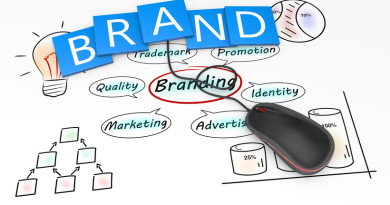3 Things You Never Want Anyone to Say About Your Brand (And What to Do About It)
Technology helps make everything work faster. Information is shared, and new styles become trendy, all at lightning speed. It also lets companies reach people around the world and expand their customer bases. However, technology has a downside too. It makes it easier for your company to get a bad reputation and harder to avoid negative brand labels because a misunderstanding or piece of misinformation can spread like wildfire, whether it is true or not.

Here are some of the things you never want anyone to say about your company and what to do about it if and when it happens.
Accused of Being Offensive
One common issue is being accused of offensive actions. It could be that you released a marketing campaign that has a double entendre you never anticipated or just an employee who was blatantly rude to a customer. Angry ex-employees or ex-spouses can sometimes perpetrate these rumors too.
Reputation management, in this case, will take some effort. You will need to assess how much damage you’ve actually experienced and explore your options for addressing those claims. Help your customers see what you are doing to prevent those instances from happening again.
Accused of Bad Customer Service
Many companies are also accused of lousy customer service. Most of the time, these are just misunderstandings that get blown out of proportion. For example, a customer may not realize that a particular item is not eligible for returns (e.g., final sale clearance) or they used an article in a way it wasn’t intended, and it broke, like using a pair of casual sneakers to run on a rocky trail. The aggrieved person takes to social media to tell their side of the story, and it ends up liking like your company is the bad guy — even if you had taken pains to be clear about your policies.
If this happens to you, your first step should be to own the situation on the same mediums where your customer is complaining. Respond to Facebook comments, Twitter posts, Instagram comments, and blog comments directly and decisively. Never pass the blame. Also, change the offending policy when possible or take the time to explain why you cannot.
Labeled as a Scam
Another common issue is being labeled a scam. People throw the word around readily, whether they genuinely think you are scamming them or not. They are just upset that your product or service didn’t perform as you had promised. While it may not be your fault that they failed — individual mileage will always vary — your company is in the crosshairs for not performing as expected.
In this case, you have one course of action — seek and destroy. You need to actively look for claims that your company is a scam and address those statements with irrefutable facts. Amway is an excellent example of this. The direct sales company was accused of being a scam. People actually said that Amway is a pyramid scheme, and it was impacting the company’s reputation. Amway took charge. The company responded to complaints specifically and produced a series of videos that explain the way direct selling works in detail. These efforts made it clear that Amway is not a scam, but company with a misunderstood business model.
Conclusion
Fixing a bad reputation can be a challenge. If your company is facing allegations or criticisms of any kind, take action and get ahead of the accusations with these tips. Businesses just like yours have overcome negative public perceptions and went on to thrive. You can too.



